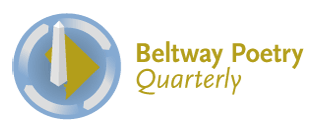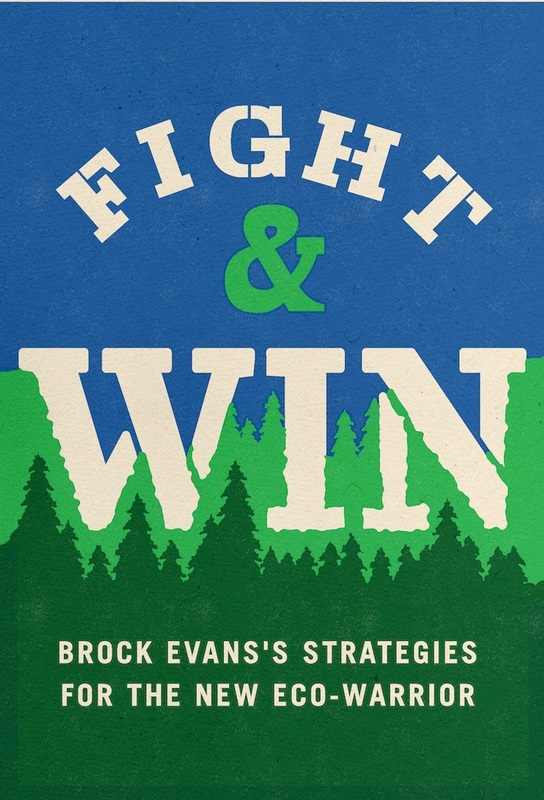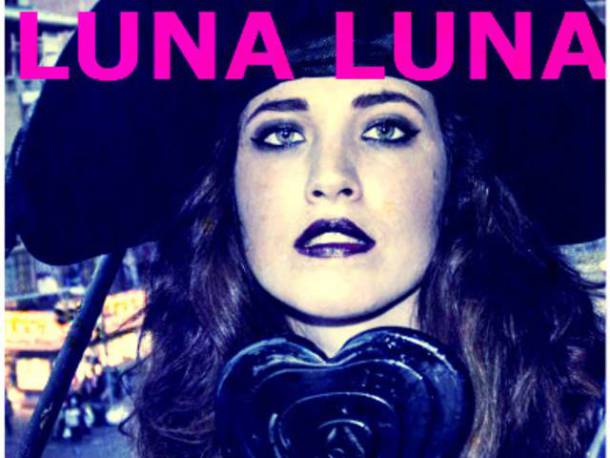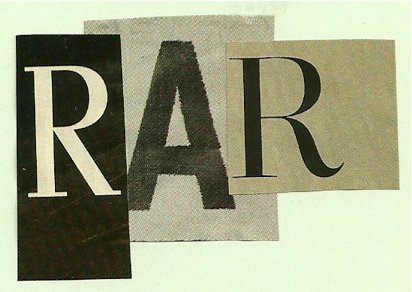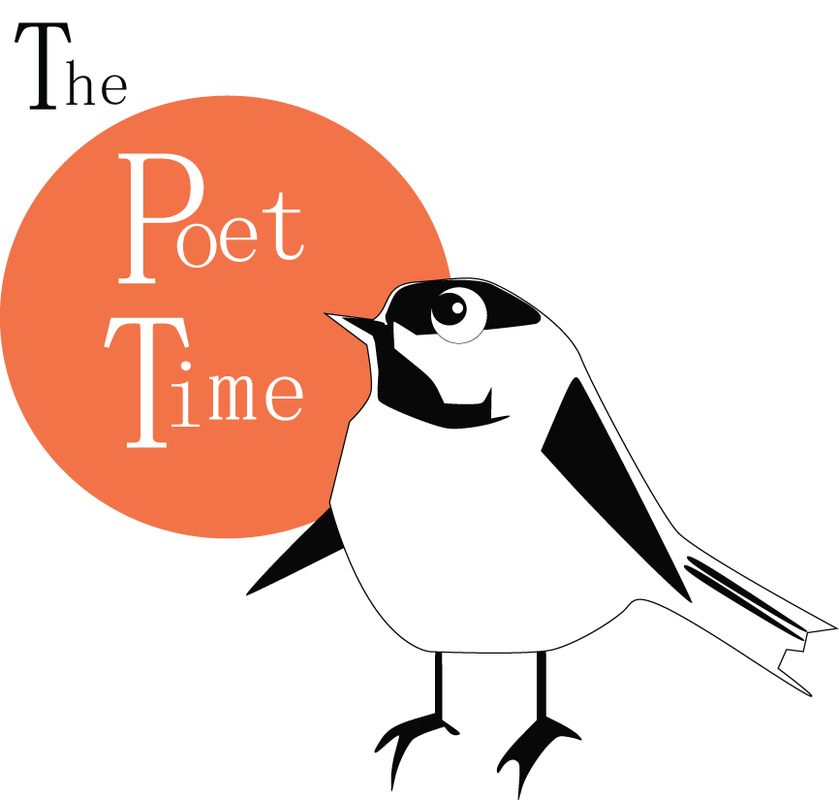|
The Breadcrumbs widget will appear here on the published site.
Spotlight: Julian DruryInterview by Ren Martinez QuailBellMagazine.com How did you get involved with Quail Bell? By random chance. I was browsing through online zines to submit work when I ran across Quail Bell. I loved the mission statement and I jumped at the chance to be a contributor. It’s a great organization, which has been open to publishing even some of my grittier work which isn’t always easy. Chief editor Christine Stoddard and managing editor Gretchen Gales have been great to work with, and I will always appreciate them for giving me a chance that others would not. What are some of the common themes you like to explore in your writing? I enjoy exploring the dark side of humanity. Fiction is saturated in feel-good works that tend to paint unrealistic pictures of the world. Complexity is the key to me. I like to focus on human characters that are troubled, if not down-right depraved. People have two sides them, like Jekyll and Hyde. Society tends to embrace Jekyll, and ignore Hyde. Yet, Hyde is always present and seldom acknowledged. I like to explore the taboo, defiance of societal norms, issues that raise eyebrows and possibly make the reader grin in irony. What was the first book to really move you? Stephen King’s short story collection, “Night Shift.” Its stories introduced me to the complexity of human characters. The stories are less about monsters, as they are about the humans who cope with these monsters. How humans react to situations they can’t explain is what fascinated me. Sometimes the real monsters are the human characters, and the ghouls are merely mirrors held up to humans who fail to recognize their troubles. Does writing exhaust or energize you? It depends. Whenever an idea sparks that I really enjoy, I can get energized to extreme degrees. Other times I’ll write, especially long pieces, and feel frustrated if it doesn’t click as quickly as I would like. Editing is certainly the aspect that exhausts me the most, and I’m probably not alone in that opinion. Your poem, “We, the Wolves,” has this gritty, dark energy to it. What inspired you to write this poem? Do you feel that “grittiness” in writing better describes reality or truth? Reality is truth, to me. The poem is inspired by people who don’t live life in the clean, accepted way that society expects. Go to college, get a job, get a car, get married, get a house with a picket fence, don’t do drugs, get rich, get complacent, and don’t rock the boat. The “wolves” are people who refuse to be tamed or killed by the shepherd (society), people who embrace their other half rather than suppress it. Reality, and truth, is gritty. Society often makes us believe that “truth” is happiness and this happiness comes from living the accepted lifestyle. It’s much like the droves of happy selfies people post on social media. The happier they seem, the more questions I raise. People tend to ignore their dark side, hoping it goes away. We are all prisoners to ourselves, and your dark half will always be with you. If you don’t let the wolf loose from time to time, it will claw its way free. So you’ve written essays reviewing Cormac McCarthy and shared your thoughts on the anniversary of Hunter S. Thompson’s passing. What draws you to these writers? What are some of your favorite women writers? Cormac McCarthy and Hunter S. Thompson are key examples of those who embrace the grit of the world. McCarthy’s work tends to deal with questionable, often depraved, characters who endure random cruelty in a world without moral center. There is no good or bad, there is just existence. Thompson was a literal embodiment of these concepts. He dedicated himself to exposing the death of the American dream and how accepted society hides behind a veneer of false happiness. Thompson let his wolf run free often, and did not live or write to please critics or readers looking for a clean fairy tale. He did what he wanted as he wanted, and didn’t care what society had to say about it. In terms of women authors, I enjoy the works of Flannery O’Connor, Shirley Jackson, Toni Morrison, Ursula K. Le Guin, Joyce Carol Oates, and have also grown fond of the works of contemporary authors Rikki Ducornet and Elizabeth Hand. Women, I believe, give a great cynical insight into societal pressures, as they tend to be more victimized by it than men. Do you outline your work or do you go with the flow? It depends. Some stories I will outline, others I won’t. Poetry is never outlined for me, it just flows as my emotions and thoughts do. Short fiction, however, can be tricky for me. Some stories will be plotted out, based on a title or ideal. Other stories will just pour out, and I type the words like a river flowing into a rough and jagged waterfall. What do you think about happy endings? They can be useful depending on the story. I have nothing against happy endings per-say. Everyone, including me, likes a story where the hero wins, where true love is found, where some great conflict is resolved. Yet, my critique, is that it doesn’t capture the complexity of the world. Happy endings might not always be so happy. Heroes have skeletons in the closet, love can end, and conflicts can reemerge. Happy endings are something we all aspire to, yet the restrictions of human society and culture often pose great risk to these endings. In fiction, I find happy endings to be too cliché and without nuance. I don’t mind a happy ending, but I suppose that my issue with it stems from its lack of catharsis. What do you do when you’re not writing? I love to expand my mind. This takes many shapes, and works at different speeds. I’m not a total people person. I love to party with people. I also cherish being alone with myself and my thoughts. I occasionally poke my head in a bar or two, perhaps even a small bookstore. Writing is all I really know, and feel that I have a stake in. I work in a restaurant kitchen, Arnaud’s in the New Orleans French Quarter, but that’s just a job. My passion is the written word, and philosophical/political thoughts that will hopefully contribute in some way to the progress of America (or humanity). What are you currently working on? Many things. I’m currently editing a short novel I wrote a couple years ago. I have some Lovecraftian stories recently published in chapbooks by Rainfall Records & Books based in Britain. I have some poetry I’m working on, and plotting out some short fiction ideas. I often get shy when discussing my own work, so I apologize if I can’t elaborate in full detail. My work are what I cherish about myself utmost, and I’m not good at discussing them personally. I am writing, I assure, which what I see as most important. CommentsComments are closed.
|
About UsWelcome to our staff blog, where you can learn more about The Quail Bell Crew. HistoryChristine Stoddard conceived the idea for Quail Bell in late 2009 after writing a children's story by the same name, and launched the website as a college blog in 2010. In June 2013, Christine and former art director Kristen Rebelo officially launched Quail Bell Magazine as a global web magazine. Read our editorial mission statement to learn more.
|

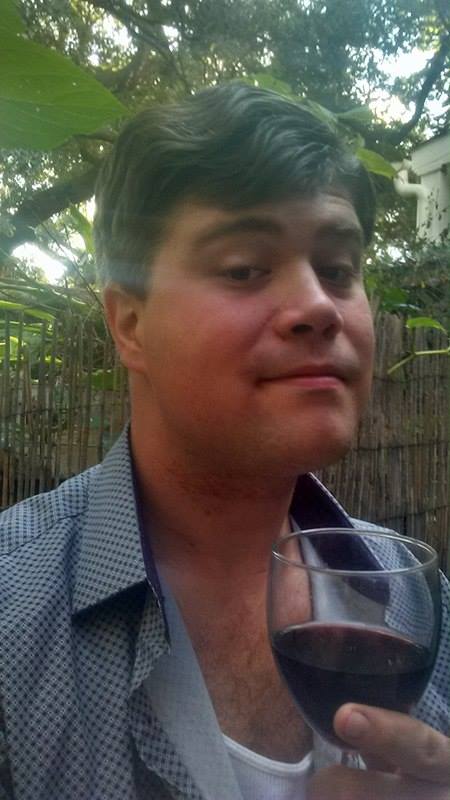



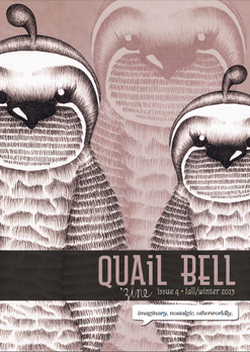
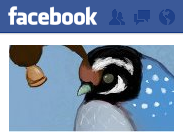
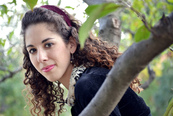
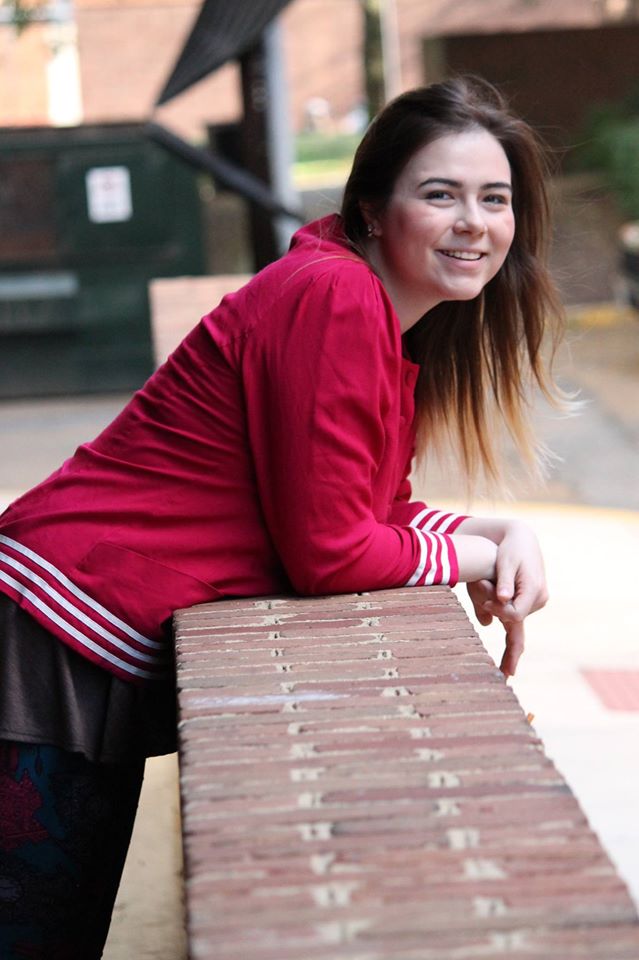

 RSS Feed
RSS Feed
